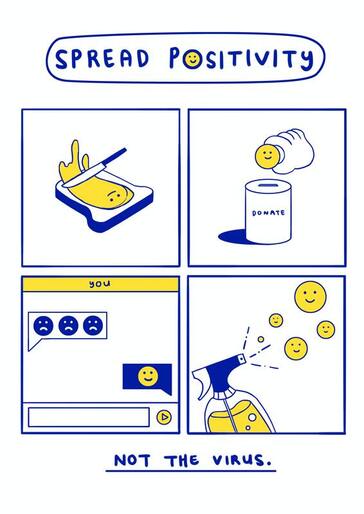 We are here for you. We hope to provide concise COVID19 information when there is a lot of conflicting news about how to safeguard ourselves. To limit confusion, here are some guidelines and links that will keep you protected as we collectively attempt to transition back to a sense of normality. These aren’t necessarily new guidelines, yet are worth remembering as we restore our economy and workforce. We aren’t out of danger yet Areas that loosened restrictions are starting to see a resurgence in COVID19 cases. Clusters of new outbreaks are threatening countries like South Korea, China, and even Germany, a country that was touted as doing an exceptional job at containing the spread of the virus. The US will not be an exception and it is important to continue to safeguard yourself and your home. Diligently practice exceptional hygiene Wash hands with soap and water for 20 seconds or more and turn off the water using a paper towel. Make it a habit to do so often and upon entering/leaving your home, office, or shared communal areas. Use sanitizer often, especially in areas with high-touch surfaces such as grocery carts, gas pump stations, and doors. Keep frequently touched surfaces like doorknobs, counter tops, car keys and credit cards clean. Sanitize these items/areas after going into public places upon returning home. Continue to wear a mask! Numerous studies demonstrate that masks are incredibly effective at limiting the spread of COVID19, by inhibiting aerosolized particles and respiratory droplets. This BBC article discusses the history of news coverage for and effectiveness of different masks from N95 to homemade versions. This article details the viral concentration that occurs with talking, exercising, sneezing, and how likely it is to spread; key areas of concentration are public bathrooms and one-on-one, extended conversations without masks. Continue to practice social distancing Yes, we miss hanging out with friends and colleagues, yet there is still substantial risk for group get-togethers. Keep a minimum of 6 feet between persons, meet outdoors with plenty of natural air flow, and keep groups to smaller sizes. As restrictions relax, we can find ourselves more often in crowded situations when shopping for supplies. Try to shop at the beginning of the day or use Google to determine what times are less busy for a business. Call ahead or purchase online to get your shopping list filled for you so that you can do curbside pickups. If you’re older, some stores have times that are specific for seniors to avoid diverse age groups. Avoid complacency, adhere to consistency for protection “COVID19 fatigue” or feeling sick and tired of the conditions of limitation due to COVID19, is common and can be irritating, overwhelming, or annoying for some individuals. Focus on personal safeguarding and think positively and remember that by following the guidelines above you protect not only yourself, but others as well. Here’s an article by Sanford Health about the power of positive thinking during the COVID19 crisis. - Kimberly Ann Brown, L.Ac.
0 Comments
Life changed course in many unexpected ways with COVID-19. Maintaining balance on social, mental, emotional, spiritual, and physical levels has been a challenge. New concerns now undergird our daily lives, redirecting our attention to family, mortality, uncertainty, and extreme economic hardships - and this is a shortened list! Finding a clear path towards a sense of balance during this time isn’t easy and requires a consistent commitment to safeguard our wellbeing. At SCA, we value you as a whole person and understand that having a sense of control and balance enables you to more comfortably surf through COVID-19 and its unknown course. We’ve compiled a quick reference guide to safeguard your wellbeing and sanity during the COVID-19 epidemic so that you can bolster your health and maintain a sense of mental fitness in these challenging times. Feeling emotional drained? How exactly can one maintain a sense of normalcy when things just don’t feel normal anymore?
Experiencing unexplained sadness, frustration, melancholy, boredom, or anger is quite normal right now. Allow yourself to have these feelings, acknowledge them, maybe journal or talk out these feelings with a trusted friend. You aren’t alone. Finding a way to express difficult emotions by sharing or writing them down can give a sense of release. Harvard published a series of webinars entitled Coping with Coronavirus: Dealing with daily stress, anxiety, and a range of other emotions, which is a comprehensive resource for understanding emotions proactively and productively. https://www.health.harvard.edu/diseases-and-conditions/coping-with-coronavirus Routines can help establish a sense of control and comfort Try to focus on these areas to add structure to your day: adequate sleep, quality mealtime, personal development, moderate exercise, outdoor time, and meaningful connections with others. Also be vigilant with self-care, like stretching, yoga, or meditation and engage your mind with useful, productive exercises such as Sudoku, daily crossword puzzles, or learning a new skill. Focus on routines that support you and your personal development. Here is an article that talks about maintaining productiveness through set routines and discipline. https://www.oregonlive.com/coronavirus/2020/03/how-to-set-a-routine-stay-productive-and-be-active-during-coronavirus-crisis.html Studies indicate that utilizing a routine can help create a sense of normalcy and this author offers ways to avoid the “procrastination vortex”. https://www.psychologytoday.com/us/blog/the-gen-y-psy/201810/the-power-routines-in-your-mental-health Having difficulty working from home? Safer-at-home measures, the closure of schools and childcare facilities, as well as the new and fashionable pajama dress code, have hindered our abilities to work in environments most conducive for getting the job done. The workplace typically offers a readily defined area to get your tasks completed in an efficient manner. Our homes are designed more for relaxation, social interactions with family members and roommates, and can simply be distracting. This article helps to reorganize your mindset and space to optimize your work environment. https://www.business2community.com/workplace-culture/finding-normalcy-in-a-world-of-chaos-working-from-home-02297455 Got some extra time on your hands? Try channeling your extra energy into a creative pursuit. Select a new or favorite hobby to devote time and practice to in order to achieve a sense of mastery. Scroll through Pinterest to see if there’s anything of interest, and upscale the look and feel of your home or add a better sense of organization to your closets or kitchen spaces. Ivy League schools are offering classes for free online where you can indulge your brain power and develop a new skill; you may not get an official degree from one of these schools, yet you can wow your friends with your extensive knowledge. https://www.classcentral.com/collection/ivy-league-moocs Want to give back, but want to do so safely? With the invisible threat of COVID-19, for some of us, our hearts are swelling and our compassion levels are at an all-time high. We want to help, but can we do so without endangering ourselves or others? Here is a great resource for where you can plug-in your compassionate spirit and assist those most in need for Colorado Springs. https://cosiloveyou.com/how-to-help-during-covid-19/ Got some tips for improving balance for your wellbeing? We’d love hearing from you and how you’re coping with the challenges of COVID-19. And remember: have patience with yourself and others, give yourself a little time and space to reorganize around new routines and self-care; expect yourself to wobble in the right direction towards optimum health, and when normalcy can be the norm again, we can all bump elbows again. -Kimberly Ann Brown, L.Ac. |
Authors:
|
Springs Community Acupuncture * 2828 W Colorado Ave, Colorado Springs, CO, 80904 * 719.464.5211


 RSS Feed
RSS Feed